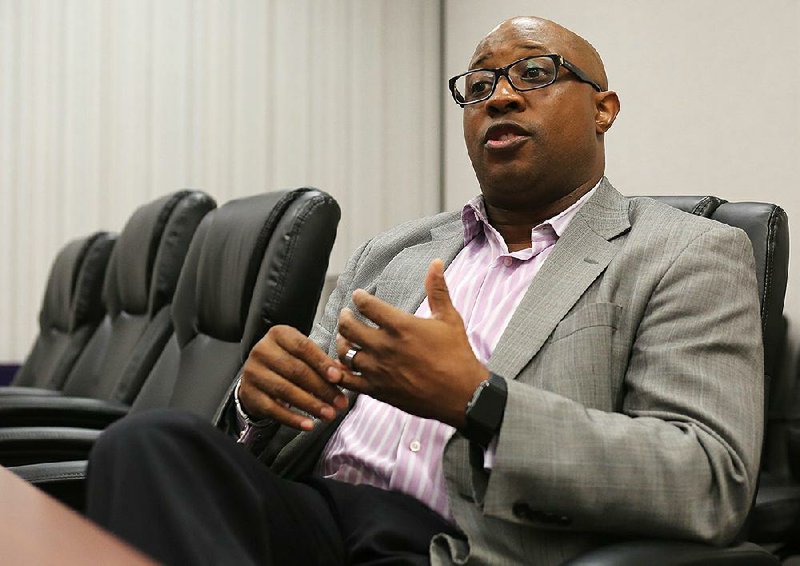Under its new leadership, the Arkansas Fair Housing Commission has prioritized resolving old cases, increasing efficiency through technology and renewing a push to educate residents around the state on fair housing laws.
Leon Jones, who used to run the state Department of Labor, took over as the new director of the commission July 1, when Gov. Asa Hutchinson's "transformation plan," took effect. The overhaul of state agencies aims to streamline state government by shrinking the number of positions that report directly to the governor from 42 to 15.
Jones replaced longtime fair housing director Carol Johnson, who left Arkansas for a job with the Oregon Bureau of Labor and Industries.
The commission, created in 2001, is a quasi-judicial regulatory agency that works with the federal government to enforce fair housing and fair lending laws. It had been an independent agency but now operates under the Department of the Inspector General, led by Elizabeth Smith.
"I was actually glad in the transformation that they did bring the Fair Housing Commission within the Department of the Inspector General because the focus aligns with our mission," Smith said.
In his first weeks as director, Jones said, he met individually with each of his seven new employees to discuss the details of their jobs and what issues the commission faces.
"I think the biggest issue is the use of technology or somewhat the lack thereof," Jones said of what he learned from those meetings. "So we're still trying to figure out what's the best use of technology here."
While he did not point to any specific technologies during an October interview, he said he hoped improvements could help his four investigators complete cases more quickly and share information faster.
Smith said that in her time working exclusively with the Medicaid Inspector General's office, she implemented a data analysis method that helped the office identify fraud. The office has a team of four data analysts who Smith said will be able to assist more offices that were folded into the new department.
She added that she hopes to make digital records to replace paper files in the housing commission's office.
"We really want to have a good tracking system for those and have a lot of these things automated so that it will be easily accessible among investigators," Smith said.
The commission will soon be housed in the same building as the rest of the department, which will make sharing services such as technical support easier, she said.
The U.S. Department of Housing and Urban Development allows 100 days for local commissions to investigate and resolve fair housing complaints.
In August, the Little Rock office had 125 "aged cases" that had exceeded the allowed number of days. As of October, that number was down to 100, Jones said.
"How do we make it more efficient for the investigators to be able to get all the information they need and then for us to move that case along?" Jones said.
He added that he's instructed each investigator to set aside a chunk of time every week to deal with these older cases.
"We've been doing a pretty good job," Jones said.
Smith said she was hopeful the commission would be able to receive more federal funding in the future as it increases the number of cases it handles annually within the allotted time.
"Once you reach a certain number of cases, they increase the federal funding based on the number of cases that you're able to close out in a year," she said.
In addition, Jones and his public information officer will be in charge of a renewed effort to educate renters, landlords, housing authority officials and others on fair housing statutes. Previously, investigators assisted in education efforts.
Jones is planning a "75-county blitz" during which he will visit cities in every region of the state to talk about common fair housing complaints, landlord requirements and how to report concerns.
"The ultimate goal is for us to have no complaints," Jones said.
He's already started the education efforts with a talk in North Little Rock, he added.
Jones also said he plans to continue organizing the annual Fair Housing/Lending Conference. HUD Secretary Dr. Ben Carson spoke at the most recent conference during April in Little Rock.
"Director Jones has a clear plan and vision for the fair housing commission, and as he came in and got on board, we reviewed his plan and his goals, and my goals are aligned with his," Smith said.
Jones makes $134,069.48 annually, the same amount he made at the Department of Labor.
SundayMonday on 11/04/2019

